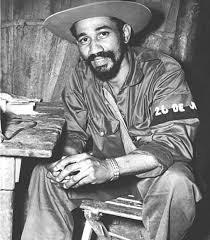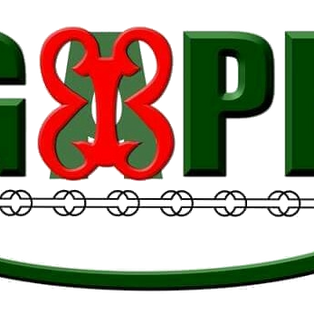Statement on Reparations Action at the UK Houses of Parliament by Esther Stanford Xosei
- XRISN-MACOT
- Nov 13, 2020
- 12 min read
Updated: Nov 14, 2020
#EstherStanfordXosei Statement on #Reparations Action at the UK Houses of Parliament today (12/11/20)

As a longstanding Reparationist with a track record of activism within the Pan-Afrikan Liberation Movement and the International Social Movement for Afrikan Reparations (#ISMAR), I have been contacted by various members of Afrikan Heritage Communities within and beyond the UK about the action relating to reparations that took place in the vicinity of the Houses of Parliament today. It has been reported that three climate change activists Action from a newly formed white led group called Action for Climate Truth and Reparations initiated by the white South African, Rob Callender, climbed scaffolding surrounding the Houses of Parliament then tied a banner to the scaffolding, which featured an open letter addressed to ‘the people of the United Kingdom’, from ‘Africans Rising for Justice, Peace and Dignity’ seemingly led by Kumi Naidoo, their Asian South African Global Ambassador and spokesperson on the question of reparations for Afrikan people. The letter is also signed in the name of Extinction Rebellion (XR) and Allies. This is the video featuring Kumi Naidoo which promotes the open letter:
With regard to XR, it was the Stop The Maangamizi: We Charge Genocide/Ecocide Campaign (SMWeCGEC) which brought the cause of Afrikan Reparatory Justice in relation to our work on ecocide and Planet repairs to that movement in the UK. initially there was a reluctance on the part of most of the XR membership to take reparatory justice on board, with some even trying to link the request to address reparations to question marks about who belongs and does not belong to the Nation of Islam (NOI) and what relationships exist with the NOI within our community, instead of looking at the proposal to develop allyship with the ISMAR as part of movement of movements-building.
Nevertheless, we had moved on from such inquisitions through painstaking dialogue and knowledge-sharing and that is what enabled the 1st Mosiah (August) Reparations Rebellion Brixton lock-down to be what it was where this year XR members supported our Afrikan Heritage Community led protest. We commend those within XR who played leading roles in respectfully engaging with the UK contingent of the ISMAR facilitated by the Extinction Rebellion Internationalist Solidarity Network (#XRISN) in ways which demonstrated due respect for the organising principles of the SMWeCGEC and the AEDRMC.
XR, with humility, played the role of ally as they had been instructed to do and they kept to the agreements made. It is therefore alarming that XR at this time, on its own, without any consultations with the organisations from our Afrikan Heritage Communities that worked with XRISN to plan and enable the 1st Mosiah engagement to happen, would now appear to go out on its own and sign up to a reparations action whilst disregarding those that had brought the issue of reparations into its fold. It appears to now be taking action on Afrikan Reparations without any consultations and discussions within its decision-making structures, as known to some of us.
It seems to be the case that those who have signed all of XR to this Africans Rising letter and action are abusing the fact of having been introduced to reparations in relation to tackling the climate and ecological crisis by Afrikan Reparationists here in the UK. Such an abuse can be seen in their attempts to now turn around and disrespect such Afrikan Reparationists and their community campaigning formations by arbitrarily seizing the cause of Afrikan Reparations, from whom it belongs, and from whom they first learned about, it in order to trade it and seemingly be auctioning it in the markets of neoliberalism to the highest bidder. Attempts to find out who is responsible for committing the whole of XR to the letter and the action, without the necessary consultations within the decision-making spaces known to some of us, is taking us nowhere because no one in XR is taking responsibility for making such a decision.
So, it appears that the name of XR in which some of us as Afrikan Heritage Community Reparationists are involved, has been misused to promote and carry out this action without following due processes within XR itself. This matter is still being pursued for all to get clarity and then our Afrikan Heritage Communities of Reparatory Justice Interest and their own organisational formations will respond to XR as deemed necessary. Already, pressures are being brought to bear for a break of relations with XR because of what is being seen as breach of trust on agreements made about how XR members will conduct themselves as allies of the ISMAR; particularly here in the UK, where sensitivities still exist on the matter in our Afrikan Heritage Communities.
The Daily Mail also reported that ‘Black Lives Matter’ (Leeds and West London) have supported this action. However, it is unclear to some of us who these groups are when it was also reported in the Guardian Newspaper on the 23rd October 2020 that Black Lives Matter UK have now renamed themselves as the Black Liberation Movement UK. When it is unclear as to who leads a movement or even particular organising structures this lends itself to the justifiable concerns about what has been termed 'movement-capture' which has been defined by scholar Professor Megan Ming Francis to describe the:
“the process by which private funders leverage their financial resources to apply pressure and influence the decision‐making process of civil rights organisations. The movement capture framework hinges on the power imbalance between those that have resources and those that need them. In this way, movement capture relates to work that highlights the power asymmetries embedded in the relationship between community organisations (international and domestic) and funding from NGOs and businesses who take a 'corporate social responsibility' approach to governance”.
It is important for me to state that one of the enduring multigenerational legacies of the Maangamizi (Afrikan Hellacaust of chattel, colonial and neocolonial forms of enslavement) has been the national and racial oppression of Afrikan People resulting in the social and civil death of the indigeneity of Afrikan Peoplehood for many Afrikans on the continent of Afrika and their descendants of Afrikan heritage in the Diaspora. So a key aspect of a holistic Afrikan Reparatory Justice process must result in ‘dignity restoration’; which Professor Bernadette Atuahene refers to as a vital part of reversing the harmful consequences of the dehumanization, infantilization, and political exclusion of indigenous Afrikans, and their kith and kin, that enabled the injustices of what we in the SMWeCGEC refer to as the Maangamizi. I say that to emphasise the point that the restoration of Afrikan agency is central to ‘overstanding’ Afrikan Reparations. As was stated by the erstwhile Afrikan United Action Front (AUAF) in their 1990s Position Paper on [Afrikan] Reparations:
“Reparations is a process, not an event; the objectives of Reparations cannot be fulfilled by a mere transfer of resources from aggressors to their victims, although that is one necessary objective in the process; in fact, Reparations begin with Afrikans reclaiming ourselves, returning to live the Afrikan personality each day, reclaiming the Afrikan source and recognising that Afrikan culture is the main tool for the liberation of the Afrikan people; that Reparations is fundamentally a process of self-emancipation”.
If we overstand this, then any efforts to undermine or deny the self-determined actions of Afrikans who have been taking action for reparations for centuries in the UK should be carefully scrutinised, challenged and where necessary resisted. This also applies to the actions of Afrikans who may be part of Africans Rising but who also follow the dictates of the white supremacy racist agenda of denying the self-determined actions of Afrikan Heritage Communities of Reparatory Justice Interest to effect and secure holistic reparatory justice. Such communities also having been involved in the building and sustaining of the UK contingent of the ISMAR which consists of a multiplicity of forces, campaigning formations, networks, organisations, and special interest groups.
It is well known that the SMWeCGEC, which partners with the AEDRMC to organise the annual 1st Mosiah (August) Afrikan Emancipation Day Reparations March (that took the form of the Reparations Rebellion this year) is championing the demand for the establishment of the All-Party Parliamentary Commission of Inquiry for Truth & Reparatory Justice (APPCITARJ). This is the central demand of the Stop the Maangamizi Petition which recognises genocide/ecocide by the British State against Afrikan People worldwide; and which every year from 2015 has been handed in to the Office of the UK Prime Minister at No 10 Downing Street on each 1st Mosiah; with the exception of this year, due to Covid-19 restrictions.
The SMWeCGEC has been working in affinity with XR since its formation in 2018 and members of the SMWeCGEC including Kofi Mawuli Klu and myself have also been working the Green Party since the early 2000s seeking support for the sacred cause of Afrikan Reparations. In July 2020, Lambeth Council became the first local authority to pass a successful motion calling for the APPCITARJ. Similarly, on 11 October 2020, on the concluding day of the their party conference, the Green Party worked in collaboration with the Pan-Afrikan Reparations Coalition in Europe (PARCOE), the SMWeCGEC and the International Network of Scholars & Activists for Afrikan Reparations (INOSAAR) to become the first major national party in the UK to commit to seeking reparatory justice for Afrikan enslavement by also supporting the demand for an APPCITARJ. Right now, as I write, we know that letters have been sent from Lambeth Council officials to members of the UK Parliament seeking action on this decades-old demand.
Yet the action that took place today treats the activist landscape in the UK as a tabula rasa upon which any old action done in the name of ‘Africans’ is deemed to be what our people want. All this despite the long track-record of Pan-Afrikan organising in Britain, which goes back to the mid 1700s! So the legitimate question must be asked of why Action for Climate Truth and Reparations and those speaking on behalf of Africans Rising chose to ignore the existing and previous efforts of Afrikan Reparationists, their organising formations and Communities of Reparatory Justice interest who are in the UK, to stop and repair the harm of the externally directed Maangamizi? Where is the ethics in this type of behaviour?, and whose interests are being served by this action which took place today calling for among other things ‘cancellation of all African debt’?
It has been a long established fact that all true Afrikan Reparationists across the world have been emphasising for centuries that with all that is owed to us in its immeasurable terms, it is insulting for anyone to say that there is any debt our people owe that needs cancellation in terms of our People's reparations. Our long standing Afrikan Reparations demand in relation to debt has been for DEBT REPUDIATION not DEBT CANCELLATION!, i.e. the refusal to give recognition to these deliberately contrived 'Odious Debts' of white supremacy racism. Anyone who is pushing so-called debt cancellation is clearly ignorant or deliberately insulting to our Afrikan Ancestors as well as our present and future generations. Those who do not know this can go back to basics of ISMAR work through the Jubilee 2000 Afrika Campaign in the Jubilee 2000 Movement and familiarise themselves with the works of giants like Osagyefo Kwame Nkrumah, Mwalimu Julius Nyerere, Professor Walter Rodney, Thomas Sankara, Juan Almeida Bosque, Professor Dennis Brutus, Winnie Madikezela-Mandela and Professor Waangari Maathai.
There is a saying that ‘those who come to equity must come to equity with clean hands’ and it simply does not bode well for indigenous Afrikans to allow themselves to be misguided to further a nefarious white supremacy racist and Asian elitist agenda of divide and misrule when it come to the sacred cause of Afrikan Reparatory Justice for which so many of our Afrikan generations both in the past and the present have been martyred and shed their blood in defence of.
Questions must also be asked about the role of the progeny of genocidaire King Leopold II of Belgium in funding leaders from structures like Africans Rising to hijack the leadership of authentic Afrikan grassroots leaders, and their Communities of Reparatory Justice Interest, who have painstakingly been seeking to effect self-determined repairs on our own terms. We in the UK contingent of the ISMAR are very well aware that we have always punched above our weight in defending the Pan-Afrikan Internationalist and Global Justice cause of Afrikan Reparatory Justice and how threatening our self-confident insistence on autonomous leadership from within our own Afrikan Heritage Communities must be those who are now seeking to misdirect the cause of Afrikan Reparatory Justice for their own attempts to NGO-ize Afrikan Reparatory Justice Resistance and Self-Repair efforts.
We in the SMWeCGEC and our partner, the AEDRMC will not be railroaded into the usual sorts of agent-provocateur actions or anything else through which our own Afrikan Heritage Communities have not adequately prepared themselves to lead on and exercise their sovereign People’s agency in sustaining. Reparations is not about stunts and gimmicks. As Professor Maulana Karenga has stated: “Rightly defined, the struggle for reparations is a struggle for justice for a people, accountability from the oppressors, and an ethical model for the world of how to treat a grievously injured people”. He goes on to state that "Reparations is a process of the repairing and remaking of a people who are in the process and practice of repairing, renewing and remaking the world". It follows that reparations cannot be limited to financial compensation alone but must also the restitution of Afrikan Sovereignty for the benefit of Afrikans worldwide.
Let me make myself clear, I have for most of my activist life worked within both autonomous Afrikan Heritage Community led movements, organisations and structures as well as cross-community and multi-racial structures. So, my comments are not made out of a distorted sense of racial bigotry towards other communities or national chauvinism. I have at various points, as a Pan-Afrikan Internationalist Reparationist, defended the role of allies in supporting the self-determined leadership of Afrikan and other oppressed Peoples’.
However, it is a long well-known maxim that people are their own liberators and that the struggles of every people, classes and social groups must be led by those people themselves. I have also encouraged allies to develop their own reparations struggles as part of the Peoples Reparations International Movement (#PRIM). That is why the SMWeCGEC works to a strategy of seeking to catalyse the forces within the ISMAR and the PRIM to ‘Stop the Maangamizi and Build Maatubuntuman in Ubuntudunia'. The role of allies can be important, but their role is not to design or lead our struggle; not to disrespect our Afrikan indigeneity or right to agency or seek to undermine the agency of Afrikan Heritage Communities either here within the UK, in Afrika or any other part of the Diaspora. Could you imagine an Afrikan living anywhere in Asia getting up and one day saying that they are leading a campaign on reparations for the Bengal Famine? Which self-respecting Bengali person or self-defining Asian person would accept this?
Of course, Afrikans all over the world have their legitimate community accountable structures which they are self-organising to stop the harm and be part of 'The Repair'. What is key, however, is that we do not allow ourselves to undermine the efforts of Afrikan Heritage Communities by making overtures to the Monarchy or the British State which not only smack of agent-provocateurism but also enable counterinsurgency and counter-revolution. We must also be vigilant about the increasing use by the intelligence and security agencies of Global Apartheid racism of Black faces to cover up their covert and overt operations against the resurgent Pan-Afrikan Liberation Movement and the ISMAR; particularly in those countries of Afrika and the Diaspora where our Afrikan Heritage Communities of Resistance are better organising for a globally coordinated Reparations Rebellion.
Another angle to this nefarious state of affairs is the attempt to continue the white colonial pattern of most viciously attacking anything from our Afrikan Heritage Communities led particularly by our Afrikan women as currently is the mostly female bridge-leadership of the ISMAR. It is common knowledge that white supremacy racist misogynists cannot stand the efforts being made throughout the Continent and Diaspora of Afrika by Afrikan women to revive our ancient traditions of gender equity, complementarity and women’s proactivity in regenerating our communities so that Afrikan People are more able, in principled unity, to self-determinedly defend their own Human, Peoples and Mother Earth Rights. That an Asian and white South African male-dominated initiative, such as this action of Africans Rising, seeks to grossly disrespect, undermine and push aside, with all the malevolence of Afriphobic racism, the Afrikan women who have for long been sustaining and bringing once again into global prominence the ISMAR, must be seen for what it is!

For those younger generation of activists rising-up, it is important to recognise that all of us joined a movement that began before us so it is necessary to build on the servant-leadership of previous generations of activists and develop the humility to find out what is happening on the issues we begin to take up,what has happened, and what motivations bring certain people to certain actions. An Afrikan Proverb states: "A climbing plant with tendrils cannot grow on its own without a tree’s support". The wisdom of experience in ISMAR-building helps one to discern that not every platform, action or messaging which purports to be championing Afrika interests or even reparations are genuinely in the best interests of the Afrikan masses.
As Professors Adjoa Aiyetoro and Adrienne Davis (2010) have quite rightly asserted in their ‘Historic and Modern Social Movements for Reparations: The National Coalition of Black for Reparations in America (N’COBRA) and Its Antecedents’: “Part of the largely untold history of reparations is the struggle not only for reparations itself, but also the struggle between distinct Black classes over strategies for citizenship and the right to envision the racial future”. So, choose your path wisely!
In Struggle & Service
Esther Stanford-Xosei

Co-Vice Chair, Pan-Afrikan Reparations Coalition in Europe (PARCOE)
Coordinator General, Stop the Maangamizi: We Charge Genocide Ecocide Campaign (SMWeCGEC)
Spokesperson, Afrikan Emancipation Day Reparations March Committee (AEDRMC)
Co-Facilitator, International Network of Scholars & Activists for Afrikan Reparations (INOSAAR)
Member Leadership Facilitation Team, Global Afrikan Peoples Parliament (GAPP)
Co-Founder, Extinction Rebellion Internationalist Solidarity Network (XRISN)
12/11/20





























Comments